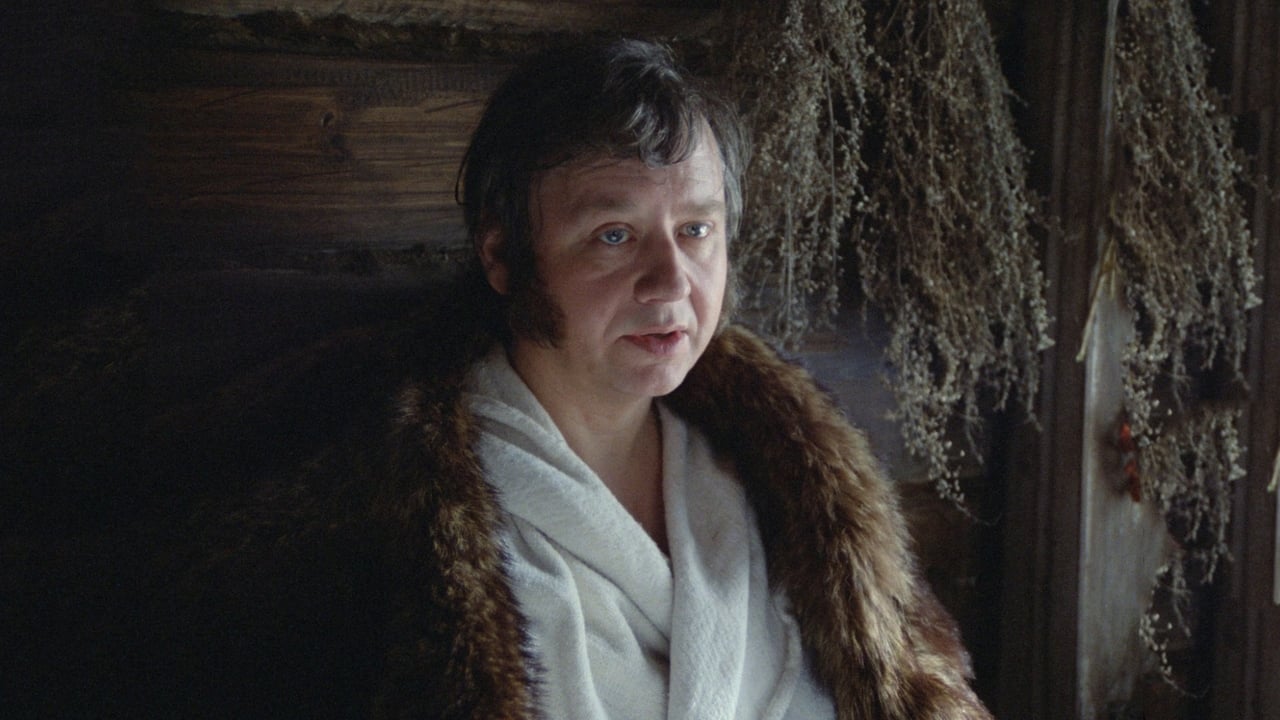

I like the storyline of this show,it attract me so much
... View MoreIn truth, any opportunity to see the film on the big screen is welcome.
... View MoreThe movie turns out to be a little better than the average. Starting from a romantic formula often seen in the cinema, it ends in the most predictable (and somewhat bland) way.
... View MoreActress is magnificent and exudes a hypnotic screen presence in this affecting drama.
... View Morein many occasions, an adaptation is a war against novel. modifications, lost of book spirit, innovations or only errors. in this case, the masterpiece of Goncharov is key for open the Nikita Michalkov universe. recipes - respect for text, good cast, precise performance, Slav flavor. only is at right place. the drama of poor Oblomov is reconstructed, piece by piece, level by level, with grace, respect and love. more than a film, it may be a portrait or homage. and basic victory is science to transform the story in warm drawing of feelings and expectations, sins and fall. it is not a surprise. only new demonstration of Mikhalkow subtle art. and this is, for each of his films, the sign who makes difference, who gives a kind of aura to every movie and births air of refined melancholia.
... View MoreJust wanted to clarify some details for those who might not understand them due to cultural differences. When you watch the movie, you suppose to read between the lines, like reading most great Russian literature. If you do not know what to look for, it might be hard to make sense. 1. There is a comparison of two households and two ways of upbringing: German and Russian. Shtolts' father is German, so from the very young age the boy was taught to work hard and do things right. On the contrary, Oblomov was taught unconditional love when he was loved for being who he is, even when he did not do anything. His always giving, self-sacrificing mother's love surrounds him like a cloud, a shrine of some sort, it is completely selfless and gentle. Only Russian mothers can love like that. Even though Oblomov gets hurt by not learning how to work hard, he inherits this deep love from his mother. When Shtolts' father bids farewell to his son, he makes sure that his saddle is tight enough and promptly leaves. This is the way he shows his son that he loves him. The Russian peasants, that work for him, find this way of saying "Good bye" against Russian customs and nature. They all start crying and bawling for Shtolts and end up sending him off the Russian way. Shtolts feels that love and,in fact, shares it.2. Even though Shtolts is better looking, more energetic, active, successful, etc. Olga falls in love with Oblomov. Why? She knows, he is the real thing. Oblomov loves her without any reservations, with all his heart, he will do anything for her. Oblomov could marry Olga but he makes personal sacrifice instead. He steps back, letting Shtolts win her hand. Why? Because his love is so deep, he is willing to sacrifice his own happiness. He wants Olga to be happy and he believes that Olga would be happier with Shtolts. Shtolts would not be able to make the same sacrifice for anyone.3. In the end we see that Olga is deeply unhappy being married to Shtolts. She is always sick and cries often. Olga and Shtolts take Oblomov's son as his guardians after Oblomov's death. Olga keeps Oblomov's son at her side to remind her about Oblomov. When the real mother comes to visit, the boy runs for a long time because he also inherited that great love. 4. The whole movie has deep philosophical meaning. It is about Russian soul. Oblomov has it. Shtolts does not. Shtolts does not blame Oblomov, he loves him. If you can understand the reasons why Oblomov does what he does, you can understand Russia. Oblomov is not depressed, he is not lazy, but he is a dreamer, an idealist, and he just does not want to do things that he views as meaningless. He also tries to figure out the meaning of life for himself - what is his purpose in life? He would rather not do anything than do something he does not believe in. He lives with his heart, not with his head. 5. One more thing: why is this movie so slow? If you compare it to some Hollywood action movies, where a new event happens almost every second, it is just unbelievably slow. There are two reasons for this. First, when you watch Hollywood movies, you are not supposed to think. You supposed to be entertained. When you are watching good Russian movies, you have to do your part of thinking and deducting the meaning from subtle details, short dialogs, sometimes even single words and definitely objects. Everything has second, third, and sometimes even forth layer of meaning. If the movie goes too fast, you won't be able to process those details and figure out: what is the author is telling us? You have to feel this movie as well. Not every question will be answered, yet many questions will be raised. You have to be very deep, observant and intelligent to understand the depth of it. Every time I watch the ending, I cry, because of the feeling that the movie creates. The second reason: this is how Russians used to live in 19 century (even now far away from the capital the life goes very slowly, not many things happen). It is just realistic and it captures the spirit. Thanks for reading.
... View MoreIt only has one part that is really funny. It is a good story, but I think that it is just a little too long. The color is not too good. The actress which acts as Oblomov's girlfriend is very good. She expressed her feelings well. she laughed, she cried, those are very authentic.
... View MoreA definitively executed rendering of a work of romanticism; it's depth largely exceeding what can be attained from within a culture, such as the north american, that has either lost its history, or never had one; this to warn it is unlikely to be appreciated by one not already steeped in the film or theater of europe or the slavs. To someone who is, a sweet but not light experience: its lessons and philosophies cannot be contained, but envelope the reader, in his own life.
... View More